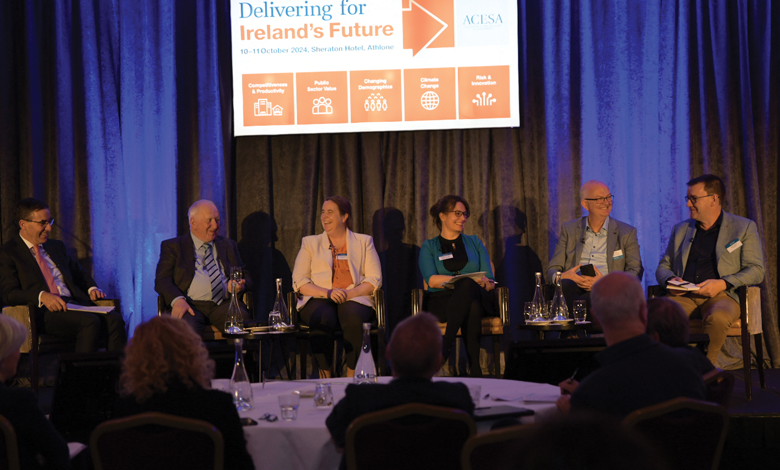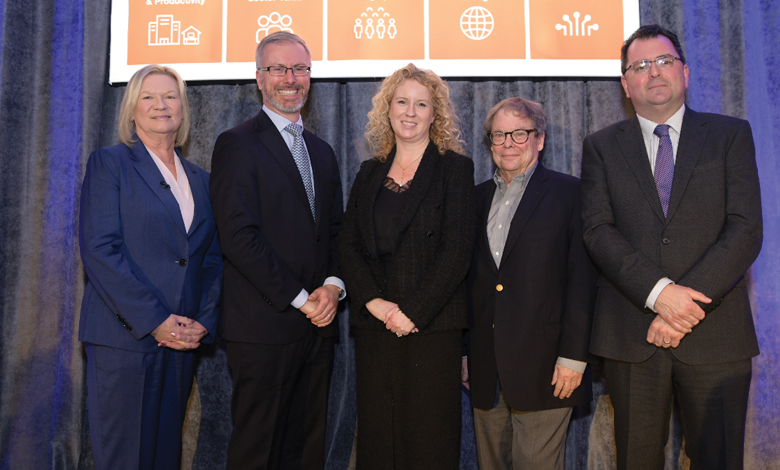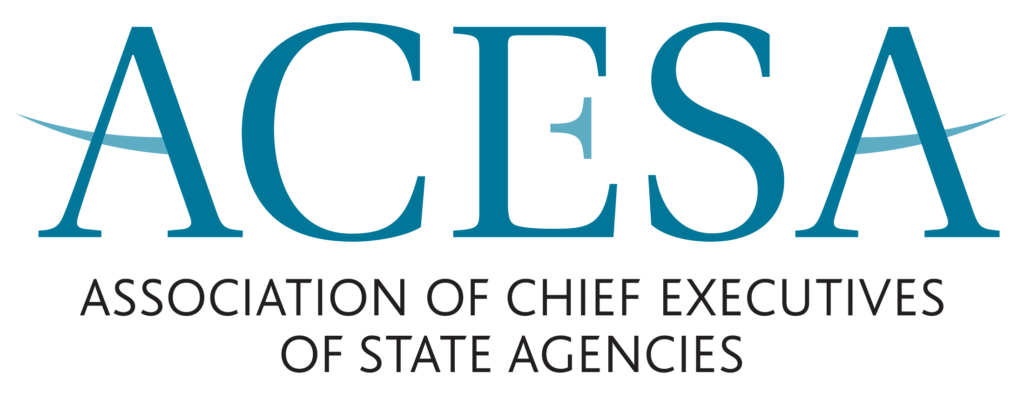Supporting the creation of ‘public value’ with Ireland’s senior public leaders

Collaboration across levels and sectors of society can create more prosperous, freer, more secure and more tolerant human societies, writes Harvard Professor Mark Moore, an international authority on strategic management by government bodies and other public enterprises.
When I received an invitation from Rosalind Carroll on behalf of the Association of Chief Executives of State Agencies to address a conference for public service leaders in Ireland in October 2024, my enthusiastic, affirmative reply went well beyond my Irish heritage. What mostly motivated me to travel from Massachusetts to Athlone was the chance to meet, hear from, and work with a broad cross section of Irish leaders.
The unique group that had come together consisted of individuals who had committed themselves to becoming “public leaders” – to use themselves, their positions, and their talents not to exercise power over others, but with and for others in collaborative efforts to imagine and concretely realise more prosperous, freer, more secure, more open, and more just societies in which to live, work, and celebrate the experience of human community.
Their “public leadership” depended critically on connecting their individually held “public spirit” – their willingness to take on the responsibility for enhancing the overall material welfare and justice of Ireland – to the existing or latent “public spirit” distributed across all individuals in the society. That connection would have to be made, I was convinced, by making appeals to the “public values” that lay within the hearts and minds of most, if not all Irish citizens.
In short, I hoped I was walking into an economic, social, and political culture that was ready to meet the challenge of creating public value, and away from my own country that seemed bent on establishing a culture of individualism, materialism, and unprincipled competition that was infecting conditions and relationships in all parts of human life.
No, this is not (at least not yet!) a request to re-patriate. But it is to say that I was hoping to take a big draught of Irish decency and commonsense before returning to the fray in the US, and to bring back the “good news” that there was some light at the end of the tunnel coming from a distant but not really foreign land.
Shift the ‘public vs private’ dialogue
You will be glad to hear, I hope, that the conference gave me great hope. The main reason was that the conference offered clear evidence of a palpable shift in what had become a not very useful discussion about the “competition” between the “private” and the “public” sectors, and helped keep the momentum going.

For the last 30 years or so, the public discussion has been largely about how “big” the public sector should be relative to the private. The driving force in that discussion was the idea that the private sector was society’s real productive sector – the place where value was created for consumers, workers and owner/investors.
The government, on the other hand, was a costly burdensome, costly stagnating presence that scooped up material and human resources and provided little of value in return. On this view, everything in society would be “better” (and fairer and more just?) if we left the economy to do its magic without too much interference (except for the reliable protection of property rights and the enforcement of private economic contracts).
A bit of reflection (along with a lot of elaborate theorising!), however, suggests that a free market system left entirely to its own devices will fail in many important ways to produce even a prosperous society, let alone a free, secure, and just one. Indeed, economic theory admits that free-market economies have “imperfections” that have to be “corrected” – presumably by some unspecified (but apparently very powerful!) other social institutions.
Significantly, many of these imperfections create serious problems not only in the material, economic conditions in society, but also in the material environmental conditions, and in the realms of social, political, and even economic and ecological conditions in which each and all of us live, work, and seek satisfaction, security, and a modest degree of significance and honour.
It follows, then, that to deal with the problematic conditions that free markets create, the free markets have to be restrained, guided, and complemented by some other social institutions – powerful enough to hammer the powerful forces of a free markets system into a more rational and humanistic order.

One such is a government. But it is not any form of government. It is a government that both depends on and seeks to develop the practices of “democratic self-governance”. According to political philosopher Hannah Arendt, a democratic government is the only form of government that can produce the only kind of freedom that is possible or desirable in a highly interdependent society: namely, a government committed to preserving and encouraging the use of individual rights that “allow individuals to participate in the design of the architecture of their own restraint”.
The second is the broad, diverse set of voluntary, civil society and political organisations that emerge as democratic citizens exercise their collectively guaranteed individual rights to think and act on their own as individuals, associations, organisations and institutions to advance their own economic, social, and political aspirations for the society in which they live.
These civic and political organisations both functionally complement and effectively influence the structure, conduct, and performance of both market-based and governmental institutions in the collective activities that create the economic, social, political, and environmental conditions in which each and all of us lives, works, and finds meaning and significance in their lives.
Without these institutions, relying only on the profit-motivated and market-guided actions of commercial enterprises, we would be left to deal with the “gale of creative destruction” that affects not only commercial enterprises, but also existing environmental, social, and political conditions in the other sectors of society.
The important question then is what institutional structures and processes can we rely on to achieve the goals of prosperity, freedom, security, and justice in what we now recognise in a highly interdependent society?
The answer that is emerging, I think, is that we cannot rely on government to act directly to solve all the problems that our vulnerability to nature, and to one another, creates. The threats we face that come from both natural causes and from the parts of human nature that motivate some individuals and institutions to seek to harm and oppress others mean that we have to shore up and further develop the institutions, structures and processes that can cause us as individuals to choose to act in ways that make the most of our opportunities to collaborate in the creation of our shared lives, and to avoid our temptation to physically harm or oppress our fellows.
This shift in focus demands us to adopt a different view of the role of the special institution called “government”, and to embrace a much wider view of how to use the government, and the other civic and political organisations that arise in democratic governments, to recover (or perhaps newly create) a broad, deep, commitment to “democratic self-governance.”
If we can learn to govern ourselves – to refrain from inflicting harm on, or oppressing others, or destroying the natural environment – then we can operate with a greater capacity to produce prosperous, free, secure, tolerant, and just societies than would be possible through any single institution called government.
The capacity for “democratic self-governance” has to become a cause that includes but extends beyond the particular institution that is called the government, and is granted special powers by its citizens.
Achieving this broad cultural and institutional purpose requires two key changes in our contemporary economic, social, and political discourse.

Credit: Eoin Healy, Athlone Photography.
Learning to collaborate in public leadership
The first focuses on the political and operational challenges that emerge as we try to accustom ourselves to thinking and acting collectively across the institutional boundaries that divide the public, from the private, from the voluntary at all levels of economic, social, and political life.
This takes a great deal of both individual and collective thought, creativity, and action among those who hold positions of public leadership across the society. It requires innovations in the operational methods we employ to deal with both stubborn, chronic problems, and emergent new ones. As important, it requires innovations in the basic structures and process of governance that can create a frame within which a sufficient coalition of actors located in different positions can assemble, deliberate, and commit to collective action that can improve the problematic conditions that are harming or oppressing their citizens.
Finally, it requires different forms of leadership and joint action that do not depend on a single individual who is granted hierarchical control over the relevant assets. This is the public leadership, and the public itself, that needs to be called into existence by circumstances that require collective public action.
Keeping the focus on the public values that animate, guide, and justify the collective effort
The second is that it is crucial for those leading such collaborations to keep their focus on the public values they seek to produce. We have named these purposes at an abstract level throughout this essay. The goals are to advance the material prosperity, the liberty, the security, and the satisfaction that comes from feeling fairly and justly treated by other individuals in their daily interactions with other individuals, and by the wider institutions with which they live and work, and which shape their individual opportunities to live with dignity, autonomy, and a sense of individual accomplishment and social significance.
It is all too easy to lose sight of the public values to be advanced through the complex, arduous, uncertain, and contested efforts of public leaders to use the structures and processes of democratic self-governance to advance these goals. Yet, if we lose sight of democratic self-governance as the apparatus that helps us find both the ends and means of our independent and interdependent public life, and fail to remain loyal to these elaborated structures as ideas that define both the ends and the appropriate means of pursuing our common purposes, we will have given up the last, best hope for creating a good and just polity, in which individuals can life prosperous, free, secure, and just lives.
To learn more about the Association of Chief Executives of State Agencies, please visit:
W: www.acesa.ie
Professor Mark Moore is research professor of public management at Harvard Kennedy School at Harvard University. He played a key role in the ‘Delivering for Ireland’s Future’ conference hosted by the Association of Chief Executives of State Agencies in Athlone in October 2024. Over two days, delegates heard from a range of civil, public, private and civic leaders on challenges, including achieving public value, climate change, changing demographics, competitiveness and productivity.






